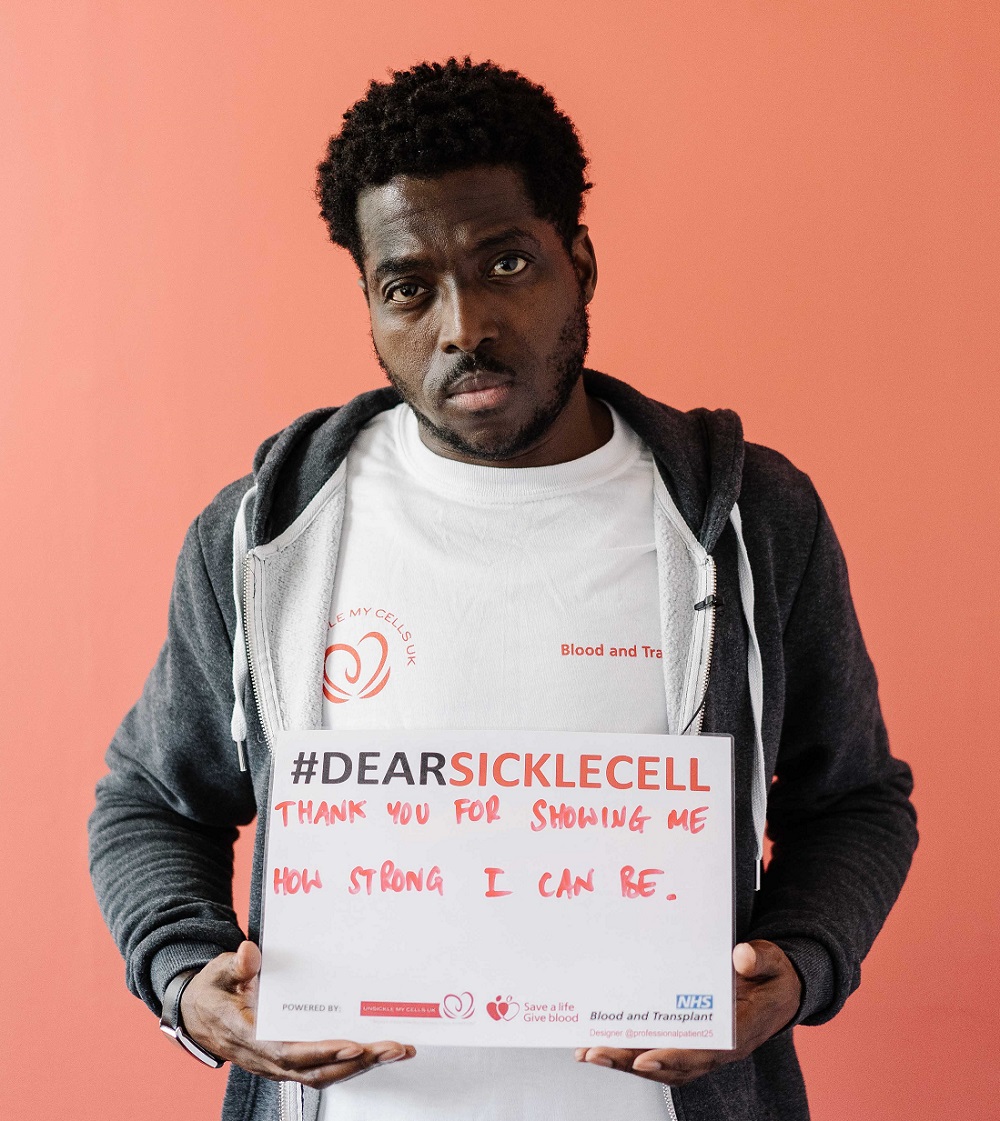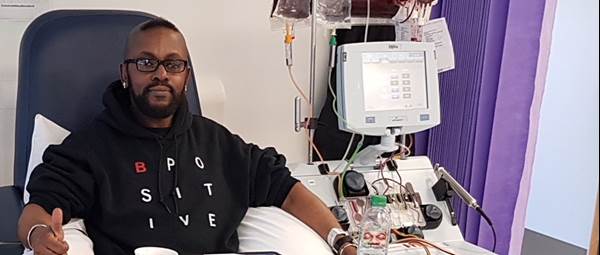People with sickle cell are encouraging more black people to donate
To mark Sickle Cell Awareness Month (September) sickle cell patients have filmed emotional messages to encourage people of black heritage to step forward and become regular blood donors.
The #DearSickleCell messages aim to help others understand the daily battle and pain that sickle cell patients and their families go through by addressing the condition as if it were a person.
NHS Blood and Transplant urgently needs more black donors to provide life-saving blood transfusions to sickle cell patients. Ethnically matched blood provides the best treatment for this.
Alonzo's story
Alonzo, 36, from Lambeth, is supporting the campaign by sharing his sickle cell story in an emotional film that will be shared across NHS Blood and Transplant’s social media channels this week.
 He knows all too well how precious well-matched blood can be after being rushed into intensive care following a sickle cell crisis and mini stroke in 2011.
He knows all too well how precious well-matched blood can be after being rushed into intensive care following a sickle cell crisis and mini stroke in 2011.
“I was told I needed 12 units of blood to stay alive. There were only 12 units of blood in the entire country that were a match for me,” he said.
“Amazingly, units of that precious B positive were blue lighted from South London, Birmingham, Manchester, Leicester and elsewhere that ultimately saved my life.”
Alonzo has developed antibodies which means his blood type is incredibly rare. The transfusions he receives need to be exactly matched to his own. Ethnically matched blood provides the best treatment for this.
“There are very few donors that match my blood type but those that do are likely to be the same ethnicity as myself. So, if it wasn’t for Black blood donors, I wouldn’t be here today,” he said.
Diagnosed at birth, Alonzo’s condition has gradually worsened over the years. He’s now in crisis every day due to Avascular Necrosis.
“My joints are constantly in pain, but it fluctuates in intensity. When you’ve had as many crises as I have, it damages the tissue. It gets to the point where the pain is a permanent, and you learn how to cope with that.”
To manage his condition, Alonzo undergoes red cell exchange treatment every four weeks, where he receives 7-12 units of blood each time.
“Since my episode of strokes in 2011 I’ve needed regular exchange transfusions. They help me manage my condition a lot more easily,” he said.
The need for more black blood donors
People from the same ethnic background are more likely to have the same blood type. However the shortage of black blood donors makes it harder to find the best matched blood for black patients.
The red blood cells of sickle cell patients form into a sickle or crescent moon shape. These deformed cells can block blood vessels, causing agonising pain, and creating a risk of organ damage, stroke, and death.
Nadine Eaton, Head of Blood Donation Campaigns for NHS Blood and Transplant said: “We urgently need more black donors to help treat sickle cell patients like Alonzo.
“The shortage of black donors makes it harder to find the best matched blood for black people, putting them at greater risk of potentially life-threatening transfusion reactions.
“Blood donation is quick, easy and safe and we urge people of black heritage in Brent to register as donors to help save lives.”
The #DearSickleCell campaign is running throughout September, which is recognised as Sickle Cell Awareness Month throughout the world. To support the campaign, please share messages on social media using the hashtag.
Register to give blood today by calling 0300 123 23 23, downloading the GiveBloodNHS app, or registering your interest online.



